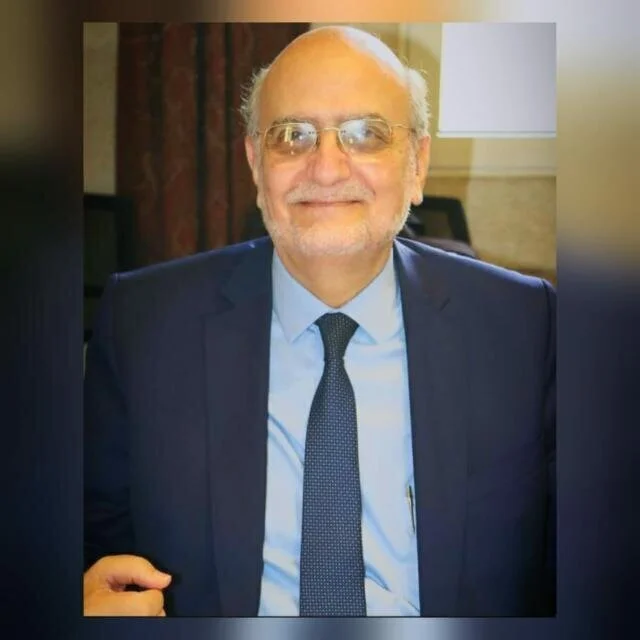On their International Day: Youth, Challenges and Questions
Dr. Michel E. Abs
Secretary General of the Middle East Council of Churches
The world celebrates on August 12 of each year the International Youth Day, and the interaction with this occasion varies between one country and another, and between one institution and another.
Young people rarely find the necessary attention for them, as society considers them a young, strong and solid group, capable of overcoming difficulties due to their age, health and aspirations. The social injustice that is clearly visible and which needs direct and, in most cases, urgent support.
As an educator for more than four decades, having lived through various categories of youth, I can simply consider that young people constitute a vulnerable and marginalized group, unintentionally excluded by society by virtue of the cultural and economic dynamics that govern the course of society.
There are many challenges facing the youth of our modern world, varying from one society to another in terms of the nature of these challenges and their weight on the lives of young people, their aspirations and, consequently, their future. However, in all cases, it bears a heavy burden on a social group that is silently marginalized and excluded under the pretext that it is a group that, because of its lack of maturity coupled with high energy, is able to withstand.
Experience shows us that this is not true, as under the apparent steadfastness of the young generation, they are a group that is being weakened and sometimes being exploited day after day in the post-industrial society and the post-modern society.
This modern society, despite all its advantages, places great burdens on the younger generation:
- Young people are more adapt to unemployment. For more than two decades we have witnessed a decrease in the average age of the unemployed, and at the same time, a decrease in the age of the unemployed for a long time. We do not deny that the various countries that instituted policies to combat unemployment have successfully dealt with youth unemployment, but growing mechanization and technological research remain faster, as the machine eliminates jobs in the productive sector at a faster pace than the policies for absorbing the unemployed labor force.
- Young people are not a priority to enter the labor market, as they find themselves in a trap that can be summed up in the following expression: "We do not employ you because you have no experience - how can I be experienced if no one employs me?" Universities have tried to solve this problem through gradual agreements with commercial or industrial establishments or unions, but the productivity criterion remains the one that governs the employment policies drawn up by productive institutions that disregard humane considerations as well as disregarding factors of competition that rages day after day in the markets.
- Youth are the priority for anyone who invents or designs things that are considered modern, whether in terms of clothing, food, drink, way of life, methods of “worship” - and here comes religious misinformation - or new political ideas, social beliefs, sexual choices and all derivatives of what a society has produced as Postmodernism. We find that all of these "innovations" pour their transformative energy on youth groups, and they are generally preyed upon by those who are in a state of unemployment, and the results are usually not to their interest.
- Young people are the priority for the so-called “underground economy” or the Parallel Economy, either because they are not properly counseled by the family as well as by the educational sector, or because they are unemployed and need income, they fall prey to marginal or illegal productive activities. They are thus put in a state of productive exclusion a fact that puts their lives in a state of instability that may in turn lead to unfathomable consequences.
- In the same context, young people are a priority in relation to the world of crime, armed groups and other criminal activities such as assassinations, theft, smuggling and their derivatives, and therefore fall into the hands of the forces of order and enter the world of trials and prisons and acquire their culture, and the rest comes automatically.
This is the tip of the iceberg of the challenges of young people in a modern society that has lost its values and its compass, in which the family is disintegrated and the rising generations are lost, and the scene becomes bleak and there is nothing that bids well for the future of humanity.
We will not propose solutions based on either the productive sector or on the political community, since we know the priorities of both. The solutions must be outside these frameworks.
In order for society to restore itself, it is necessary for the Church of Christ to play a fundamental and effective role through the institutions that it has historically established. The main challenge is for the Church to regain - or to reassume - its role in a society lost in the desert of modernity falling as it is into the quagmire of tyrannical individualistic selfishness. The main challenge lies in the set ups of ecclesiastical structures ranging from parish to university levels, passing through the school, the hospital, the home for the disabled, the nursing home, and the humanitarian aid agencies, and these are all institutions that modern society, consciously or unconsciously, tries to marginalize and tighten its the siege on them.
The challenge is for young people to be adequately integrated, socially as well as professionally, in their communities and thus do not turn into a species that marks extinction.

